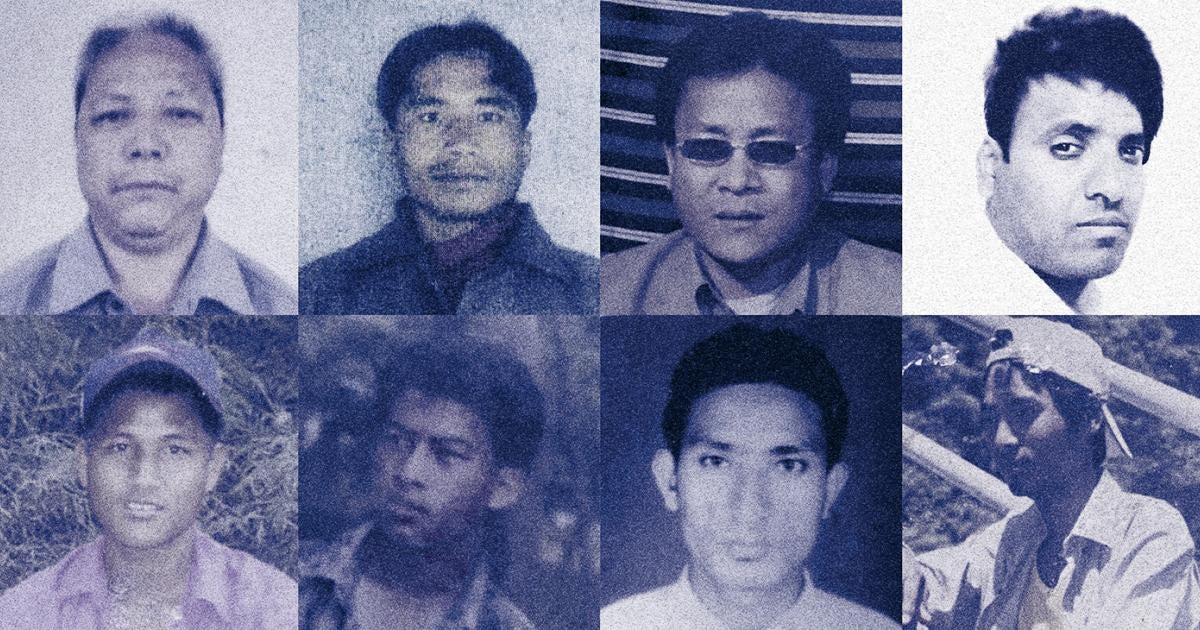EU Urged to Push Bhutan for Political Prisoner Release
The European Union should press Bhutanese authorities to release dozens of political prisoners held for decades in dire conditions, Amnesty International and Human Rights Watch said today. An EU human rights dialogue with Bhutan is scheduled later this month, just weeks after United Nations human rights experts issued a communication raising concerns over reports that the prisoners were "denied due process and fair trials, including access to lawyers," and allegedly subjected to torture.
The communication by six UN human rights experts, published on April 4, raises concerns that "the broad and vague definitions [of "treason"], combined with the severity of the punishments, have a severe chilling effect on the enjoyment of human rights … and consequently on democratic life and civic space in the country."
"Bhutan portrays itself as a land of 'mindfulness' and 'gross national happiness,' but UN reports paint quite a different picture," said Smriti Singh, Regional Director for South Asia at Amnesty International. "Dozens are still detained, mistreated, and tortured solely for peacefully dissenting against the government's policy, an ordeal Bhutan's King could end at the stroke of a pen."
Bhutan is seeking to enhance its international partnerships and economic cooperation, including with Australia, India, Thailand, and the EU. The relationship with the EU includes tariff and quota-free access for Bhutanese exports to the EU market under the Everything but Arms scheme, which is linked to international human rights obligations.
The EU is also providing assistance intended to promote human rights and civil society space, as well as investment in infrastructure development. The EU should insist that Bhutan shows its commitment and respect for human rights by immediately releasing all 32 political prisoners and others detained solely for the peaceful exercise of their human rights, Amnesty International and Human Rights Watch said. On April 14, Members of the European Parliament holding key positions on EU political and trade relations with Bhutan formulated similar calls in a letter to Bhutan's prime minister.
The UN experts' communication examines the cases of 19 named individuals, "among others," expressing serious concern that their fair trial rights appear to have been violated, that they were "severely tortured, both to extract confessions and to punish them," then convicted under "vague" laws, and jailed in inhumane conditions.
In 2023, Human Rights Watch documented the cases of 37 political prisoners in Bhutan. Since then, 5 have completed their sentences, leaving at least 32 still serving terms of between 32 years and life without parole.
In November 2024, another group of UN experts, the Working Group on Arbitrary Detention, adopted an opinion on three of the prisoners' cases, finding that they met the definition of arbitrary detention, which would make their detention illegal under international human rights law. Both groups of experts asked the Bhutan government to respond to the allegations but have received no response.
Most of the cases relate to events in or around 1990, when about 90,000 Nepali-speaking Bhutanese were expelled from Bhutan amid widespread rights violations and became refugees in Nepal. Those who remained in or returned to Bhutan, who publicly opposed the arbitrary citizenship determination, were arrested, tortured, and convicted in unfair trials based on coerced confessions. The longest serving political prisoners have been in jail since 1990, while others were arrested in 2008 after they re-entered Bhutan to campaign for the right to return.
Tens of thousands of Bhutanese refugees eventually received refugee resettlement in third countries, including in the United States. However, the Trump administration has deported close to a dozen of these resettled refugees, stating that they have been accused or convicted of crimes in the US. This is a clear violation of international human rights law, including customary international law and the Convention Against Torture and Other Cruel, Inhuman or Degrading Treatment or Punishment, which prohibits the transfer of any person to another state where the individual could be at risk of being subjected to torture.
The Bhutan government permitted the US government to deport them to Bhutan and then promptly expelled them to Nepal via India, suggesting that the Bhutanese authorities continue to discriminate against this community.
The new UN communication raises allegations that "[p]olitical prisoners are reportedly given inadequate food, water, heating, bedding and warm clothing" and that "detainees [also] suffer shortages of medicines and access to doctors. Those with physical illnesses - some as a result of alleged torture - do not receive necessary medical treatment, which may have contributed to the death of two detainees." The detainees are prevented from communicating with their families, they said.
The UN experts noted that in 1999 the former King Jigme Singye Wangchuck granted amnesty to 40 political prisoners, including some serving life sentences.
In 2022, the present king granted amnesty to a political prisoner serving a life term. "We implore the King to exercise His Majesty's power to pardon and release from prison the remaining political prisoners, so as to demonstrate Bhutan's commitment to upholding human rights and its international legal obligations," the UN experts wrote.
"Bhutan has adopted significant reforms since 2008, but the continued detention of political prisoners represents a major stain on its human rights record," said Meenakshi Ganguly, deputy Asia director at Human Rights Watch. "Bhutan's international partners and investors, including the EU, should make it clear that they expect Bhutan to comply with its human rights obligations and release them without further delay."
https://www.hrw.org/news/2025/04/14/eu-should-press-bhutan-free-political-prisoners
View Original | AusPol.co Disclaimer
